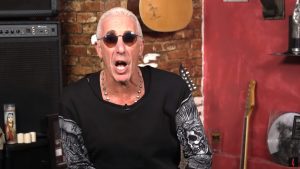Former Guns N’ Roses Manager: ‘It Cost Me Millions to Escape Axl Rose’

via @_mckagera_ / Instagram
Alan Niven, the former manager of Guns N’ Roses, has opened up about the staggering financial toll it took to walk away from the band—specifically, from frontman Axl Rose. In a recent interview with Louder Sound, Niven revealed that he paid millions to sever all professional ties. His decision was not about money but about peace of mind.
Niven managed Guns N’ Roses during their most successful years, guiding them from clubs to stadiums. But despite the highs, the backstage reality was far from glamorous. His fallout with Axl Rose was deeply personal and professionally draining.
To free himself, Niven relinquished a lifetime commission deal worth far more than what he received in return. While the $3.5 million payout sounds impressive, the long-term losses paint a very different picture.
View this post on Instagram
Lifetime Deal, Lifetime Stress
At the heart of Niven’s story is a rare commission deal that promised lifelong royalties. Anything he worked on—negotiated, released, or mastered—while under contract with the band would generate income indefinitely. This included iconic albums like Appetite for Destruction and Use Your Illusion I & II.
He even turned down a proposed raise to 20% commission, keeping his original 17% intact. But things soured quickly when Rose fired him in 1991, two years before the renewed contract was set to expire. By then, the band’s global impact made the commission increasingly valuable.
Instead of fighting to keep those rights, Niven made the unorthodox move of selling them back to the band for $3.5 million. While it offered immediate relief, the decision cost him tens of millions in the long run.
Burnout Over Billions
Niven admits the payout was nowhere near what he was owed. At the time of settlement, Geffen Records had only paid royalties on about five million albums. But Appetite for Destruction alone has sold over 30 million copies to date.
Once taxes and partner cuts were accounted for, his take-home from the deal was a fraction of the projected lifetime earnings. Still, he describes feeling too emotionally and mentally drained to continue working with Rose.
This financial decision was less about numbers and more about sanity. “That’s how burnt out and disillusioned I was,” Niven said. The cost was high, but to him, the cost of staying would have been higher.
View this post on Instagram
A Career Beyond GNR
Despite walking away from one of the biggest bands in rock history, Niven didn’t vanish from the music scene. He went on to manage acts like Great White and Izzy Stradlin’s post-GNR project, The JuJu Hounds. His influence extended beyond his time with Guns N’ Roses.
During his tenure, Niven not only steered the band’s creative output but also achieved what no one else could—renegotiating their deal with David Geffen. This move strengthened their business standing but may have also sown seeds of conflict with Rose.
Ultimately, Niven’s story is a reminder of the human toll behind rock and roll success. He traded millions in royalties for peace of mind—a rare, candid glimpse into the price of surviving the chaos behind one of rock’s most legendary bands.











